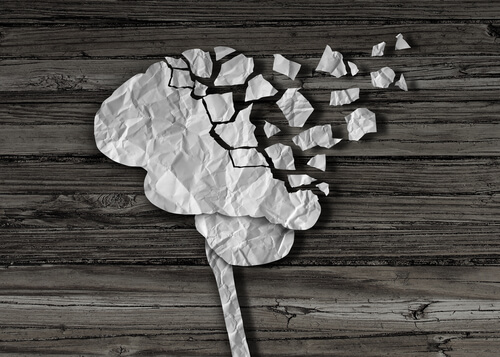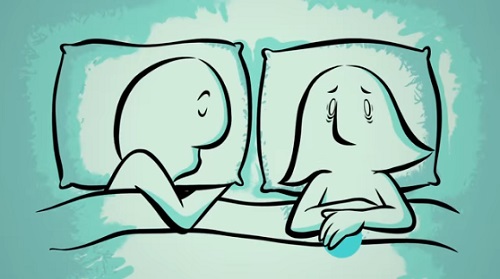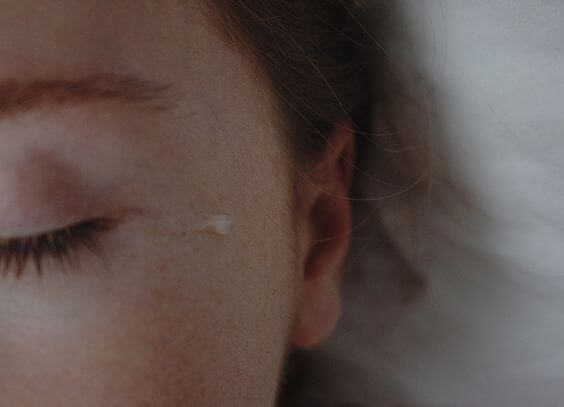When Brain Damage Doesn't Take Your Loved One Away, But Changes Them Forever

When brain damage doesn’t take your loved one’s live, but changes who they are forever, you’re in one of life’s most difficult paradoxes. Your loved one hasn’t physically gone away, and yet they’re no longer the same. They’ve changed. And it’s not only because of the physical disability that often accompanies brain damage, but because of personality changes as well.
How can you explain that your loved one has turned into a stranger? That they aren’t who they once were? The way they are has changed color. Perhaps the former social butterfly is now apathetic and closed off. There is a part of us that still recognizes them and another that does not.

Your husband, father, brother was once very respectful and highly educated. But as a result of brain damage, he isn’t anymore. His brain has “turned off” the switch that governs social norms. He no longer has certain social filters. There’s no self-control and anyone who doesn’t know that he was injured will just think he’s rude.
Your loved one may not be aware of their brain damage
Often, people who’ve had brain damage are not as aware of the repercussions as their family members. Brain damage sometimes is like that. It looks like a defense mechanism, protecting them from feeling the full weight of what happened to them.
The fact is that this mechanism does exist. It is a pathological condition of people who have suffered brain damage and have neurological (cognitive) problems, but aren’t aware of the difficulties they pose. This clinical phenomenon is called “anosognosia.“ Anosognosia refers to those who have no perception of their functional neurological deficits.

In other words, they are somewhat unable to fully grasp the consequences of their injury, be they cognitive, physical, or behavioral. Many times they’re not aware of their problems with attention or explosive reactions.
There are cases where people with brain damage can’t walk again, but they blame others for not letting them do things themselves. They may have a hard time acknowledging what happened to them and how that affects them.
Families grieve when a loved one remains, but very changed
All of this creates feelings of impotence and frustration in the family. The only thing worse than the fact that he’s not the same anymore is that he doesn’t even realize he’s not the same. The change is difficult for the people around him.
Imagine that someone close to you is still alive, but no longer the person you knew him as. His way of being and going throughout life has changed. This is one of the hardest things the family of a patient with brain damage has to deal with.
There will be a change in family dynamics. The puzzle breaks up, the pieces fly away. Now, it’s time to adjust our perspective and make some order out of this sudden chaos. Disturbing feelings may come up, like envy, despair, uncertainty… guilt. You’ll feel a lot of things. It’s a loss, after all.

That’s why it’s so important to emphasize that brain damage will change the lives of all involved. It’s essential to share your mixed feelings so that you can help your loved one cope with the experience better. Reposition the pieces of your life with them and give it new meaning. It is an exercise in courage and admirable wisdom.
To close, we would like to express our full support to families who have been affected by brain damage.
When brain damage doesn’t take your loved one’s live, but changes who they are forever, you’re in one of life’s most difficult paradoxes. Your loved one hasn’t physically gone away, and yet they’re no longer the same. They’ve changed. And it’s not only because of the physical disability that often accompanies brain damage, but because of personality changes as well.
How can you explain that your loved one has turned into a stranger? That they aren’t who they once were? The way they are has changed color. Perhaps the former social butterfly is now apathetic and closed off. There is a part of us that still recognizes them and another that does not.

Your husband, father, brother was once very respectful and highly educated. But as a result of brain damage, he isn’t anymore. His brain has “turned off” the switch that governs social norms. He no longer has certain social filters. There’s no self-control and anyone who doesn’t know that he was injured will just think he’s rude.
Your loved one may not be aware of their brain damage
Often, people who’ve had brain damage are not as aware of the repercussions as their family members. Brain damage sometimes is like that. It looks like a defense mechanism, protecting them from feeling the full weight of what happened to them.
The fact is that this mechanism does exist. It is a pathological condition of people who have suffered brain damage and have neurological (cognitive) problems, but aren’t aware of the difficulties they pose. This clinical phenomenon is called “anosognosia.“ Anosognosia refers to those who have no perception of their functional neurological deficits.

In other words, they are somewhat unable to fully grasp the consequences of their injury, be they cognitive, physical, or behavioral. Many times they’re not aware of their problems with attention or explosive reactions.
There are cases where people with brain damage can’t walk again, but they blame others for not letting them do things themselves. They may have a hard time acknowledging what happened to them and how that affects them.
Families grieve when a loved one remains, but very changed
All of this creates feelings of impotence and frustration in the family. The only thing worse than the fact that he’s not the same anymore is that he doesn’t even realize he’s not the same. The change is difficult for the people around him.
Imagine that someone close to you is still alive, but no longer the person you knew him as. His way of being and going throughout life has changed. This is one of the hardest things the family of a patient with brain damage has to deal with.
There will be a change in family dynamics. The puzzle breaks up, the pieces fly away. Now, it’s time to adjust our perspective and make some order out of this sudden chaos. Disturbing feelings may come up, like envy, despair, uncertainty… guilt. You’ll feel a lot of things. It’s a loss, after all.

That’s why it’s so important to emphasize that brain damage will change the lives of all involved. It’s essential to share your mixed feelings so that you can help your loved one cope with the experience better. Reposition the pieces of your life with them and give it new meaning. It is an exercise in courage and admirable wisdom.
To close, we would like to express our full support to families who have been affected by brain damage.
This text is provided for informational purposes only and does not replace consultation with a professional. If in doubt, consult your specialist.







